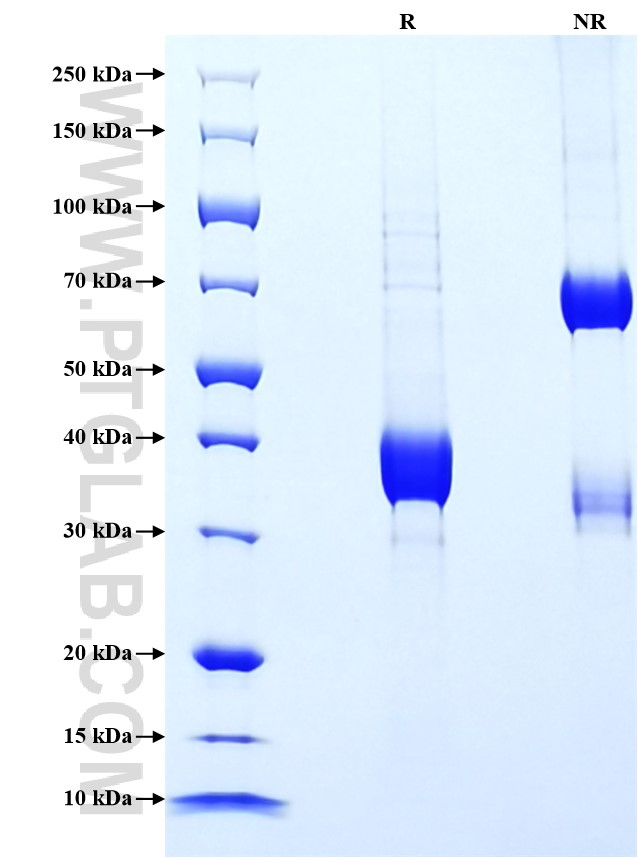Recombinant Human CCL20/MIP-3 alpha protein (rFc Tag)
种属
Human
纯度
>90 %, SDS-PAGE
标签
rFc Tag
生物活性
未测试
验证数据展示
产品信息
| 纯度 | >90 %, SDS-PAGE |
| 内毒素 | <0.1 EU/μg protein, LAL method |
| 生物活性 |
Not tested |
| 来源 | HEK293-derived Human CCL20 protein Ala27-Met96 (Accession# P78556-1) with a rabbit IgG Fc tag at the N-terminus. |
| 基因ID | 6364 |
| 蛋白编号 | P78556-1 |
| 预测分子量 | 35.2 kDa |
| SDS-PAGE | 35-40 kDa, reducing (R) conditions |
| 组分 | Lyophilized from 0.22 μm filtered solution in PBS, pH 7.4. Normally 5% trehalose and 5% mannitol are added as protectants before lyophilization. |
| 复溶 | Briefly centrifuge the tube before opening. Reconstitute at 0.1-0.5 mg/mL in sterile water. |
| 储存条件 |
It is recommended that the protein be aliquoted for optimal storage. Avoid repeated freeze-thaw cycles.
|
| 运输条件 | The product is shipped at ambient temperature. Upon receipt, store it immediately at the recommended temperature. |
背景信息
CCL20, also known as MIP-3 alpha, is a chemokine expressed mainly in the lymphatic tissue, lung and liver produced by cells related with inflammation and autoimmune response such as endothelial cells, neutrophils, natural killer (NK), Th17 cells and B cells among others. CCL20 contributes to inflammatory cell recruitment. CCL20 selectively signals through its receptor CCR6. The ligand-receptor pair CCL20/CCR6 is responsible for the chemoattraction of immature dendritic cells, effector/memory T cells and B cells, and also serves a role in the skin and mucosal surfaces under homeostatic and inflammatory conditions, as well as in pathological processes, such as those associated with cancer and rheumatoid arthritis.
参考文献:
1. Schutyser E. et al. (2003). Cytokine Growth Factor Rev. 14(5):409-26. 2. Hromas R. et al. (1997). Blood. 89(9):3315-22. 3. Shimizu Y. et al. (2001). Hepatology. 34(2):311-9. 4. Lee AY. et al.(2013). Front Immunol. 4:194.


